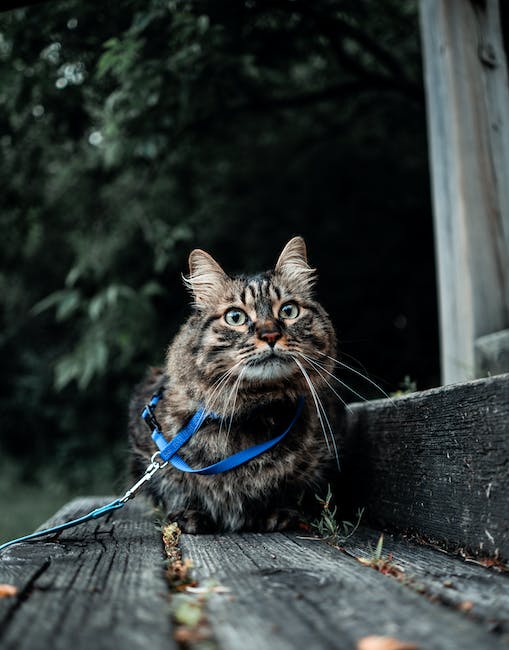As pet owners, we all want to ensure that our furry friends are healthy and happy. We take them for walks, play with them, and give them the best food we can afford. But there’s one aspect of pet health that often goes overlooked: hydration. Just like humans, pets need water to survive and thrive. In fact, proper hydration is essential for their overall well-being. In this article, we’ll explore the importance of pet hydration and provide tips on how to keep your furry friend’s paws from becoming parched.
1. Quenching the Thirst: The Importance of Pet Hydration
As pet owners, we all want our furry friends to be healthy and happy. One of the most important aspects of pet health is hydration. Just like humans, pets need water to survive and thrive. Here are some reasons why pet hydration is crucial:
- Water helps regulate body temperature and prevent overheating, especially during hot weather or exercise.
- Proper hydration supports healthy organ function, including the kidneys and liver.
- Water aids in digestion and helps prevent constipation.
- Hydration is essential for healthy skin and coat.
So, how can we ensure our pets are getting enough water? Here are some tips:
- Provide fresh, clean water at all times. Change the water daily and wash the bowl regularly.
- Consider adding water to your pet’s food, especially if they eat dry kibble.
- Encourage your pet to drink by placing multiple water bowls around the house or adding ice cubes to the water.
- Monitor your pet’s water intake and consult with a veterinarian if you notice any changes or concerns.
Remember, proper hydration is essential for your pet’s health and well-being. By taking simple steps to ensure they have access to clean water and encouraging them to drink, you can help keep your furry friend happy and healthy.
2. Parched Paws: How Dehydration Affects Your Pet’s Health
Dehydration is a common issue among pets, especially during the hot summer months. It can lead to a range of health problems, from dry skin to kidney failure. Here are some of the ways dehydration can affect your pet’s health:
- Urinary tract infections: When your pet is dehydrated, their urine becomes concentrated, which can lead to the formation of crystals and stones in the bladder and kidneys. This can cause pain and discomfort, and in severe cases, it can lead to urinary tract infections.
- Heatstroke: Pets can easily overheat in hot weather, especially if they are dehydrated. Heatstroke can cause vomiting, diarrhea, seizures, and even death if left untreated.
- Organ failure: Dehydration can put a strain on your pet’s organs, particularly the kidneys. Over time, this can lead to kidney failure, which is a serious and potentially life-threatening condition.
To prevent dehydration in your pet, make sure they always have access to clean, fresh water. You can also add wet food to their diet, which can help keep them hydrated. If you notice any signs of dehydration, such as dry skin, lethargy, or dark urine, take your pet to the vet right away. With proper care and attention, you can help keep your pet healthy and happy all year round.
3. Keeping Your Furry Friend Hydrated: Tips and Tricks for Pet Owners
One of the most important things you can do as a pet owner is to ensure that your furry friend stays hydrated. Proper hydration is essential for your pet’s health and well-being, and it can help prevent a variety of health problems. Here are some tips and tricks to help you keep your pet hydrated:
– Always provide fresh, clean water: Make sure your pet has access to fresh, clean water at all times. Change the water frequently, and clean the bowl regularly to prevent bacteria from growing.
– Consider a water fountain: Some pets prefer to drink from a moving water source, such as a fountain. Consider investing in a pet water fountain to encourage your pet to drink more water.
– Add flavor to the water: Some pets may be more willing to drink water if it has a little flavor. Try adding a small amount of low-sodium chicken broth or tuna juice to the water to make it more enticing.
– Offer wet food: Wet food contains more moisture than dry food, which can help keep your pet hydrated. Consider offering your pet wet food in addition to dry food.
– Monitor your pet’s water intake: Keep an eye on how much water your pet is drinking each day. If you notice a significant decrease in water intake, it could be a sign of a health problem, and you should consult your veterinarian.
In addition to these tips, it’s important to remember that different pets have different hydration needs. Factors such as age, size, and activity level can all affect how much water your pet needs. As a pet owner, it’s your responsibility to monitor your pet’s hydration and make adjustments as needed to ensure that your furry friend stays healthy and happy. As pet owners, it is our responsibility to ensure that our furry friends are well-hydrated and healthy. The importance of pet hydration cannot be overstated, as it plays a vital role in their overall well-being. From providing fresh water at all times to monitoring their water intake, there are many ways we can help our pets stay hydrated. By taking the necessary steps to keep our pets hydrated, we can ensure that they lead happy, healthy lives. So, let’s raise a bowl to our furry companions and make sure their parched paws never go thirsty again.

